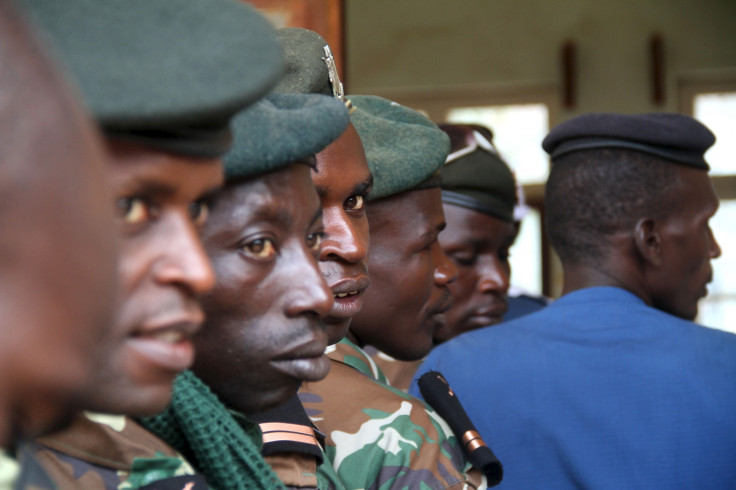Burundi: Wave of arrest and 'assassinations' of army officers is a 'purge', says lawyer
Arrests come after alleged attack on military camp earlier this week, amid fears they may lead to civil war.
Burundi's civil society has warned that the ongoing arrests of military officers across the country following an alleged attack on a military camp on Monday night and early Tuesday (23 and 24 January 2017) may lead to civil war.
Little information is known about the attack itself, or the identity of the suspected attackers, but local residents described hearing gunshots coming from the military camp of Mukoni in the north-eastern province of Muyinga.
The army spokesman, who said rebels were not behind the attack, said that a non-commissioned officer arrested in the camp on Tuesday had allegedly revealed the identities of his accomplices based in other military camps across the country. Dozens of military officers have since been arrested.
"Since the supposed attack on the Mukoni military camp, we have documented the arrests of at least 18 army officers," Armel Niyongere, a Burundian human-rights defender and lawyer representing victims at the International Criminal Court, exclusively told IBTimes UK.
According to the lawyer who condemned a lack of updated information from the Defence Minister, the ongoing arrests are no longer targeted at officers from the Mukoni camp. "Military officers are currently being arrested everywhere; in Ngozi, in Gitega, in the centre of the country and in the capital, Bujumbura."
Niyongere confirmed reports that the body of a warrant officer identified as François Nkunzimana, who was arrested following the attack and handed over to the police, was discovered the next day in a small forest nearby the camp. Next to him were two other, unidentified bodies. "The local administration gave orders to bury the bodies on the spot, before any autopsy was carried out or before any inquiry was opened. They were buried without identification."

Warning of what he called a "purge", Niyongere suggested the recent wave of arrests and executions may be targeted at former Burundian armed forces almost entirely drawn from the Tutsi minority.
Following Burundi's pacification in the mid-2000s, authorities successfully integrated former rebels into the armed forces, now composed equally of the country's two main ethnic groups. These include soldiers of the former regime, the predominantly minority Tutsi ex-Armed forces of Burundi (ex-FAB) and former majority Hutu rebel factions (ex-PMPA), who had been fighting against the Tutsi-led regimes.
We believe the attack may have been used as an excuse to arrest and assassinate ex-Fab soldiers, which is giving an ethnic dimension to the current crisis. This leads us to believe that something is brewing under the surface
Describing fears that the army is "on the brink of explosion", the lawyer warned the civilian population could be the first victim would ex-Fab and ex-PMPA start taking up arms and fighting against each other.
"There are many things that go unsaid, and there is a real risk this could all end up in a civil war. This would be very serious if it was started by the military in possession of state-owned weapons," Niyongere said, in reference to the beginning of the 1972 civil conflict.
Niyongere's allegations differ from the government's official assertion that it has achieved calm and that the country is peaceful.
Officials, who publicly describe those warning of an imminent escalation of the conflict as alarmists, describe the current crisis as political, and not divided along ethnic lines. Reports of an ethnicisation of the conflict would, officials claim, undermine the chances for a peaceful and diplomatic resolution to the current crisis.
Niyongere was the chairman of the Christian Action for the Abolition of Torture (ACAT) in Burundi.
© Copyright IBTimes 2025. All rights reserved.






















